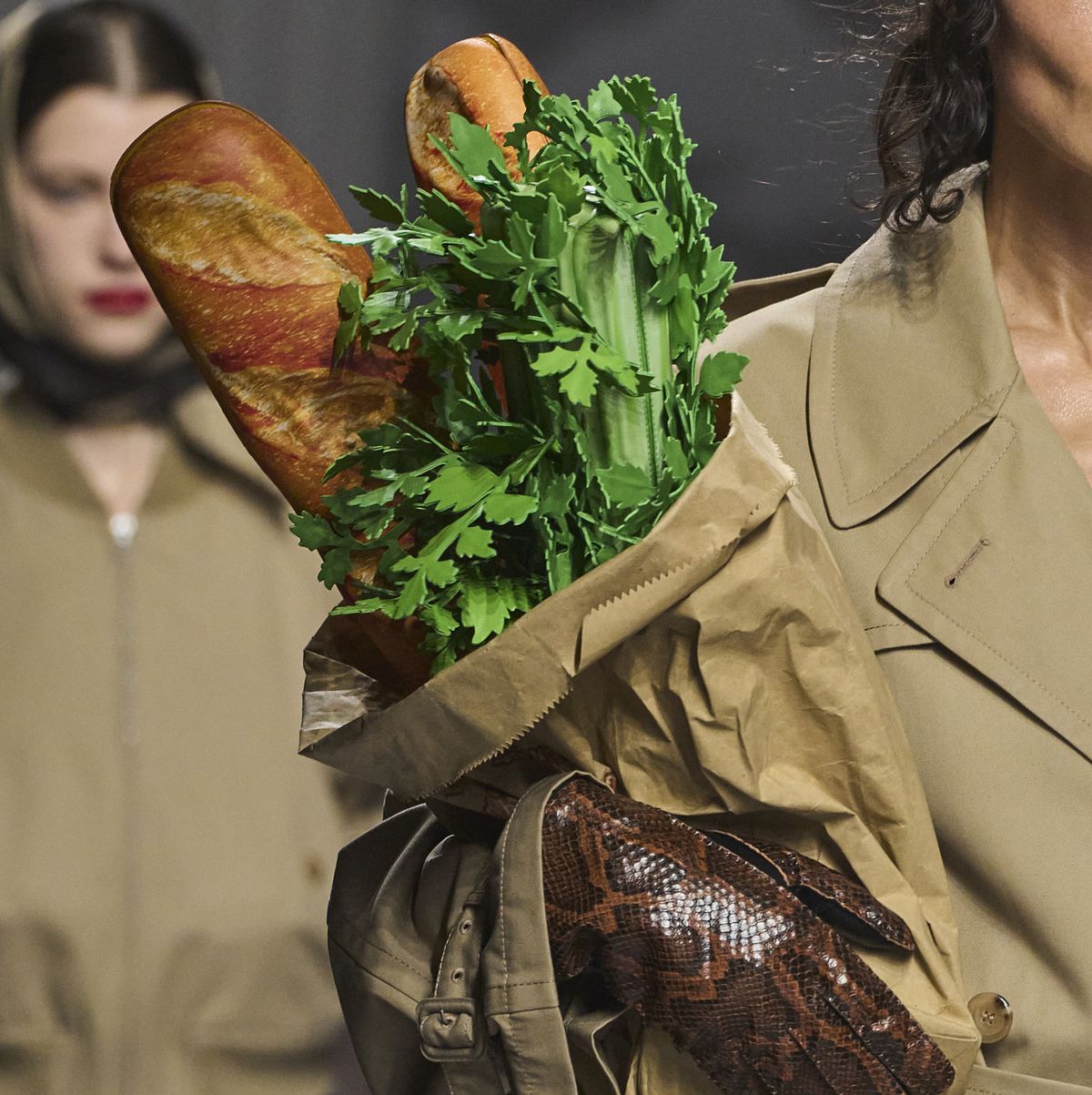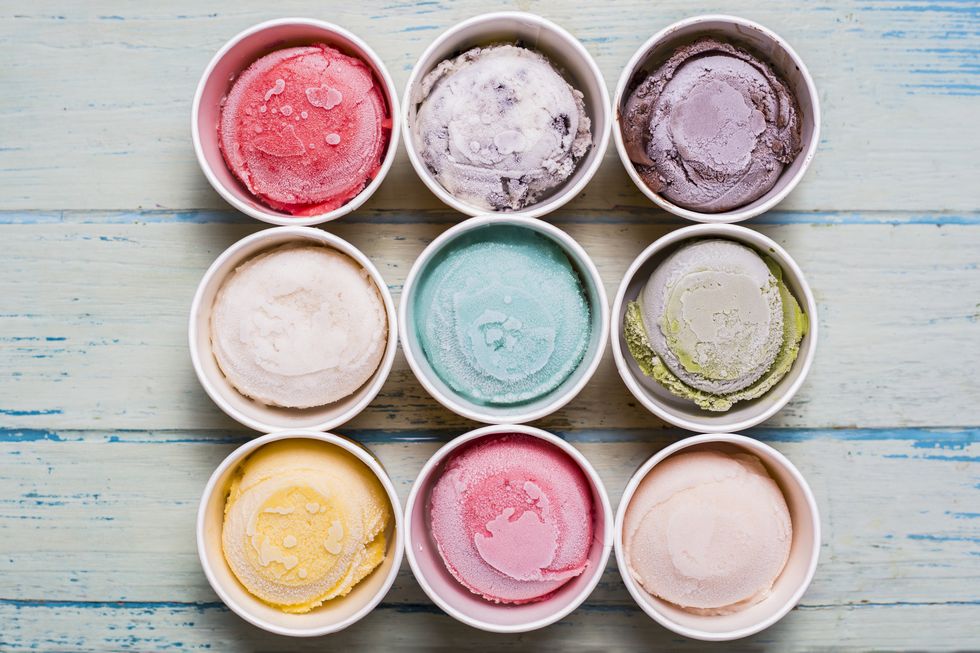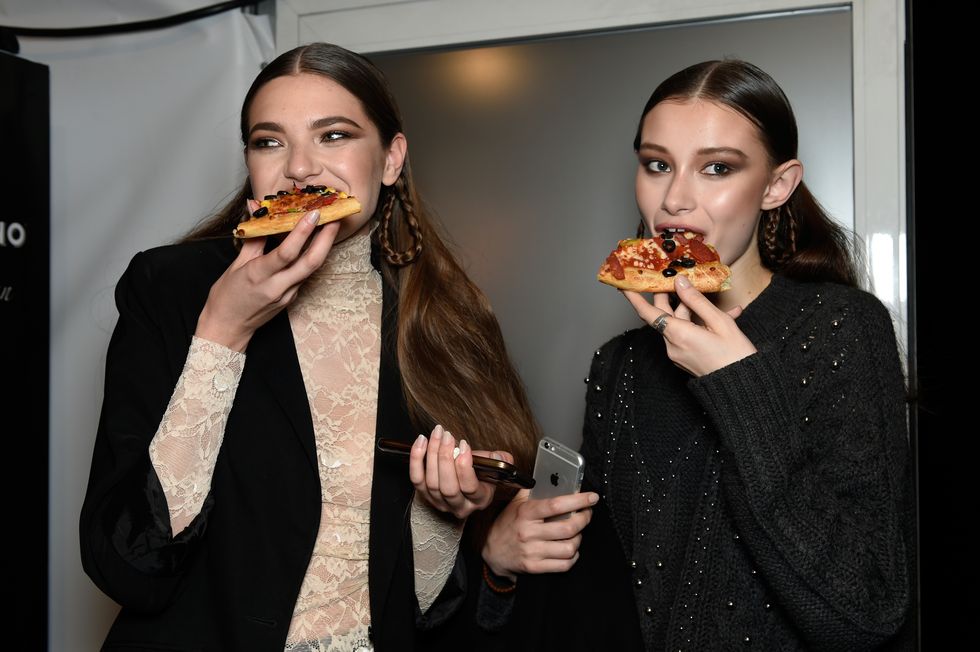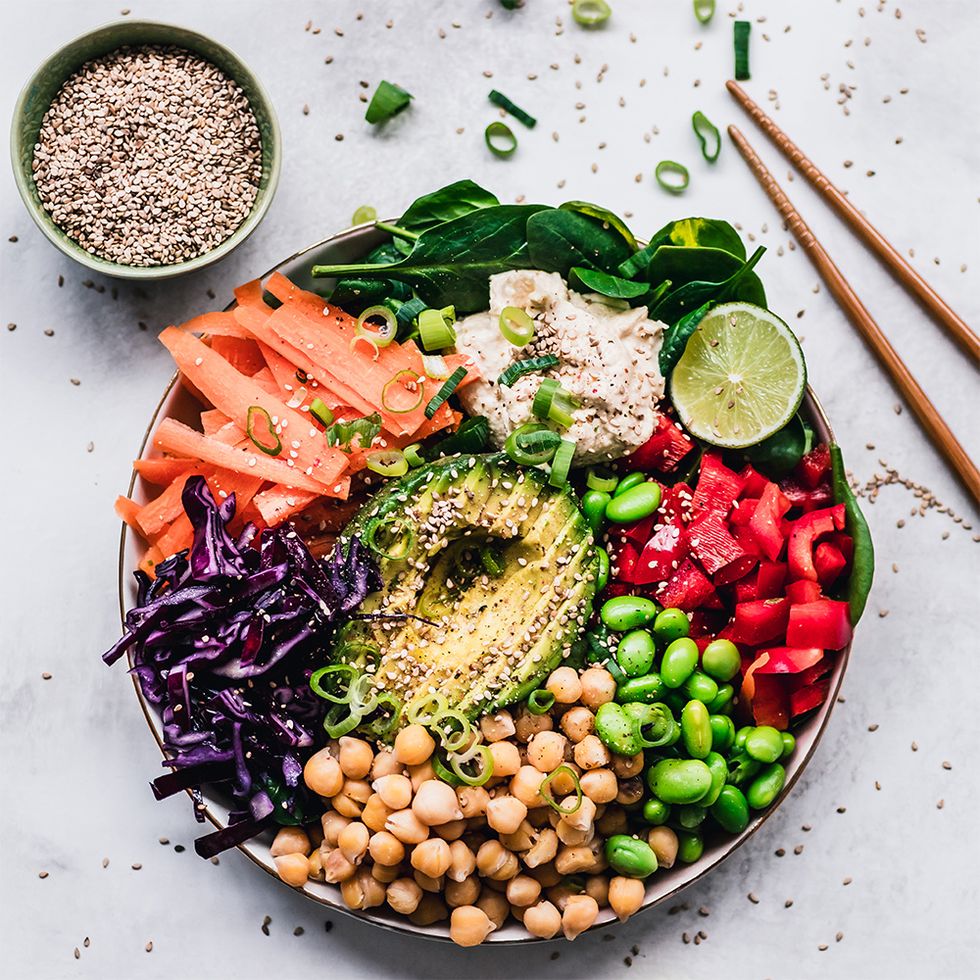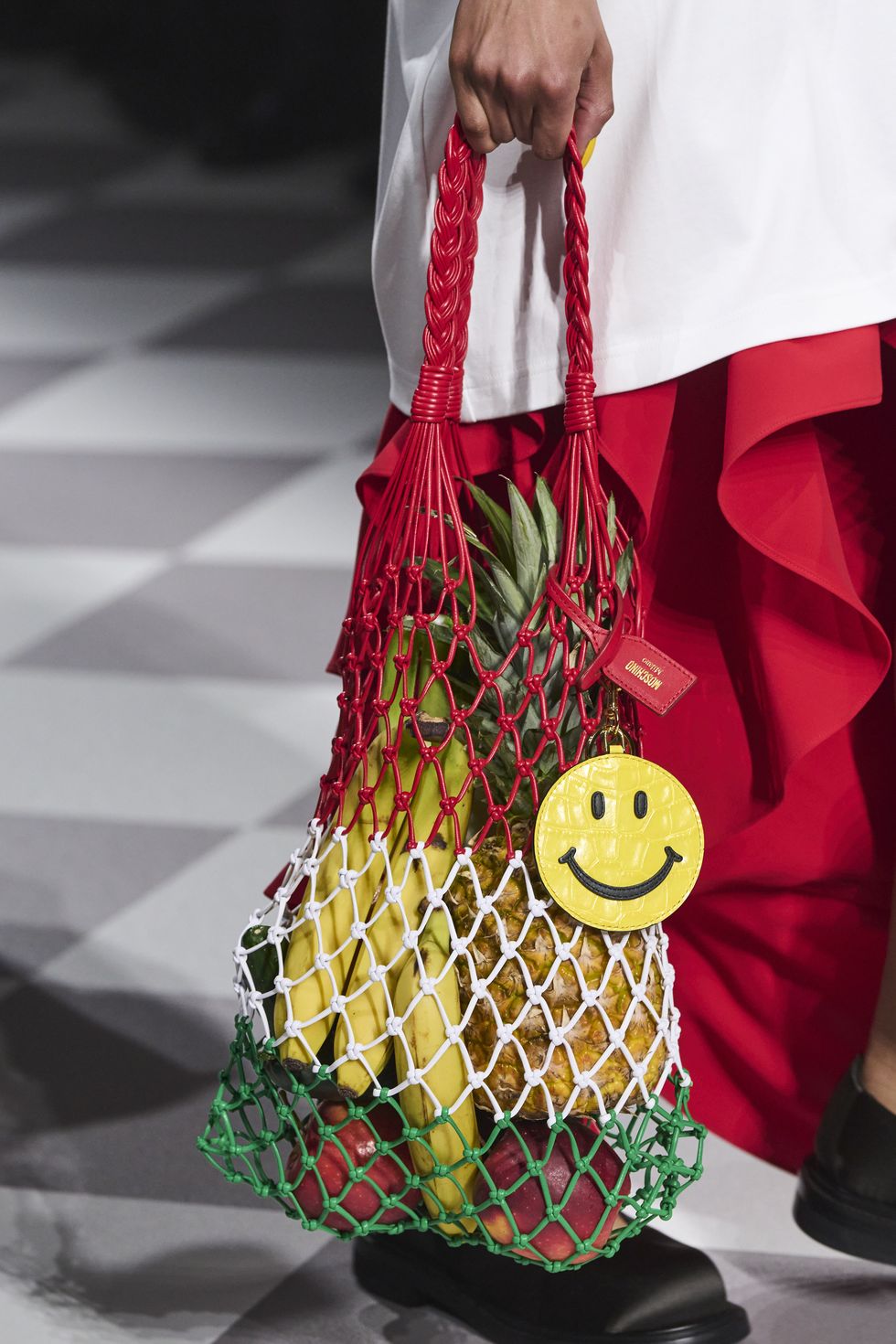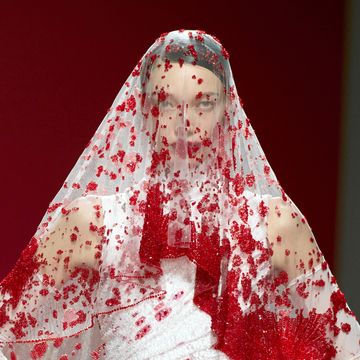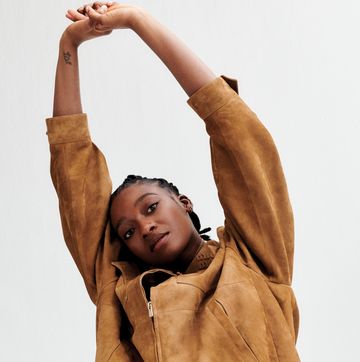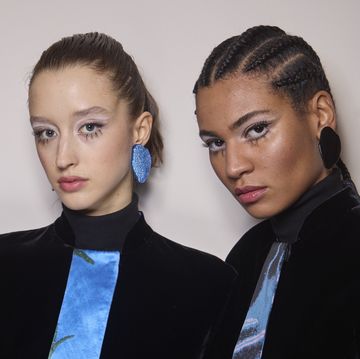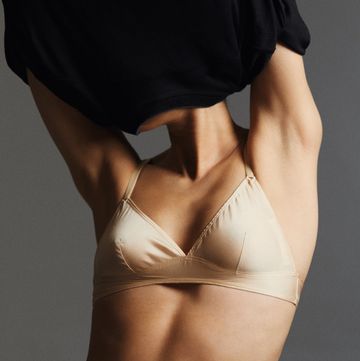‘I’ve stopped eating sugar. I haven’t had it for 10 months and I’ve never felt better,’ a well-meaning, porcelain-skinned, unbelievably lithe influencer tells me over dinner, while I wolfed down another spoonful of the most delicious pavlova, complete with perfectly sweetened meringue, cream as fluffy as the edges of a Sleeper set and succulent berries (quite healthy, as far as desserts go, I thought).
‘I’m so happy you feel better,’ I replied, because what else is there to say when diets are brought up at the dinner table? I’m not one to judge, I firmly believe people should consume whatever they fancy so long as it makes them feel good in their bodies.
FIND OUT MORE ON ELLE COLLECTIVE
‘It’s hard to give nutrition advice on social media without getting questioned about it,’ she continued. I agree. We should be cautious about viewing – and sharing – health-related advice on the internet. There's enough misinformation as it is.
‘That’s why I’m taking a nutrition course.’
Oh?
‘I need people to know that I know what I’m talking about.’
‘Great! How long is it?’
‘Three months!’
There’s something unsettling about somebody claiming to be an expert after such brief training. I could take an art history course in that time, but it doesn’t make me a historian. As a beauty editor I'm also highly passionate about skincare, but alas, you should still probably have that rash checked out at the GP (even if I have the cream to help ameliorate it for tonight).
As it turns out, said influencer is only one of many content creators who are moonlighting as a ‘nutritionist’ through their various social media channels. On TikTok, ‘food experts’ and ‘healthy living advocates’ are telling me I need to up my protein intake. But not too much. Have I tried going calorie deficit? Am I drinking eight glasses of water daily? Did I know that was a myth? Have I monitored my glucose levels yet? How's my gut health? Over on Instagram, my feed is filled with slim, able-bodied, Gwyneth Paltrow lookalikes extolling the virtues of starting the day with a home-made smoothie.
Many are models and style mavens I’ve followed for years for good ol’ fashion inspiration, but a quick glance at their recent profiles tells me that they’re now self-titled nutrition experts, too. Which begs the question – is everyone a nutritionist now?
‘The title “nutritionist” isn’t protected, meaning that anyone can call themselves one even if they have no training in nutrition,’ says registered dietitian and director of City Dietitians, Sophie Medlin. Nutrition courses abound on the internet, with institutions promising earning potential within three months, while others boast half-day to six month-long sessions. Medical experts agree that dietitians are the most reliable source of information when it comes to nutrition, but what’s the difference between the two?
‘Dietitians are the medical nutrition people. We have done a three-year degree in nutrition and undertaken hospital-based training alongside consultants and nurses to learn how to apply the science of nutrition to medicine,’ explains Medlin. ‘Some people who use the title “nutritionist” will have done a degree in nutrition and are qualified to advise the general public on healthy eating strategies for overall health but not for medical conditions.’
Nutritional therapists are another subset, and are often trained to sell tests and supplements, which, according to Medlin, isn’t considered to be an evidence-based way of practicing. Medlin is extra careful about taking nutrition advice from a doctor. ‘It's particularly worrying to see so many doctors touting unsafe nutrition advice online,’ she says. ‘As someone who has taught nutrition to doctors over many years, I know how little nutrition education doctors get.’
Consider this: you wouldn’t ask a cardiologist about acne, and you wouldn’t see a dermatologist for chest pain; so it stands to reason that it’s best to rely on a dietitian for food advice, especially if you do have health concerns. ‘Existing research shows that 90% of nutrition information shared online is not evidence based and for that reason, I think we need to approach everything we see with caution,’ offers Medlin.
Separating fact from fiction can be tricky, especially as many food experts online generally have the aspirational façade of looking put together, fit, and full of joie de vivre. That’s not to say that what they’re doing isn’t working for them, and to some degree, might even be useful for you, but it’s important to understand that the human body is nuanced. Restrictive diets take the joy out of eating (and is unsustainable in the long term) while some tips – such as that one influencer who recommended dipping your orange slices in paprika and cinnamon for a detox – is just downright dangerous. It’s also a slippery slope for those with a history of eating disorders or who are prone to food anxieties (worrying about the repercussions of food consumption).
It doesn’t mean that nutritionists have no merit to them, you just need to dig a little deeper to find out their accreditations. Reliable nutritionists are registered with the Association for Nutrition while dietitians are registered by the Health and Care Professions Council. Both databases are available online.
In the virtual space, ‘be cautious of anyone using clickbait callouts in their content, making guarantees on results, or taking generalised approaches - our bodies are all incredibly unique, and the way we respond to and react to different foods and exercises are different,’ warns Meghan Foulsham, a registered nutritionist at Fresh Fitness Food with a background and expertise in clinical nutrition and eating disorders. She continues: ‘Even if we ate the same meals and did the same exercise routines, we would still all look very different, so be wary of anyone promoting a one-size-fits-all approach.’ It goes without saying but your favourite celebrity/food influencer/fitness guru is also either paid to consistently work-out and meal prep or have the privilege of time, personal chefs and private trainers at their disposal.
Not all nutrition trends are bad. ‘We’ve seen the rise in “chopped salads” recently, which is a fun and easy way of eating vegetables,' agrees Foulsham, who recommends taking note of how you feel while you’re viewing the content. ‘If you’re feeling inspired or excited, great! But if you’re feeling guilty, stressed, or if it's dictating your thoughts and actions, unfollow or mark as “not interested.”' In other words, no nutritionist should ever shame your body and eating habits.
As for nutrition advice that would generally benefit everybody, Foulsham suggests ‘focussing on what you can add to your diet, rather than what you think you should remove.’ It will shift your mindset away from restriction, and allow you to include the foods you love, but in a more moderate manner. Incorporate protein, carbohydrates, fat and at least one portion of fruit and vegetables into every meal; it’s easier to follow, and allows you to include all the things you and your body will appreciate.
‘There’s space for all food and drink in your diet, just aim to add as many nutrients as possible,’ she says. Finally, listen to how your body feels after a meal to help you pinpoint foods that energise and nourish versus those that leave you lethargic and still hungry. ‘There’s still space to eat things that satisfy emotional cravings (again, add, not remove), but over time you’ll learn to listen better to what your body needs,’ offers Foulsham.
Looks like I won’t be saying no to the dessert course anytime soon.
ELLE Collective is a new community of fashion, beauty and culture lovers. For access to exclusive content, events, inspiring advice from our Editors and industry experts, as well the opportunity to meet designers, thought-leaders and stylists, become a member today HERE.
